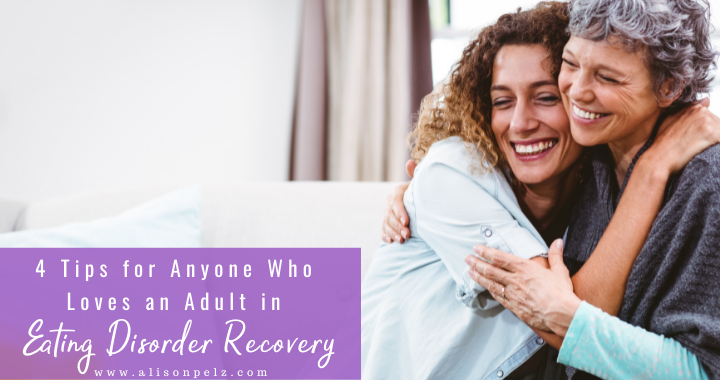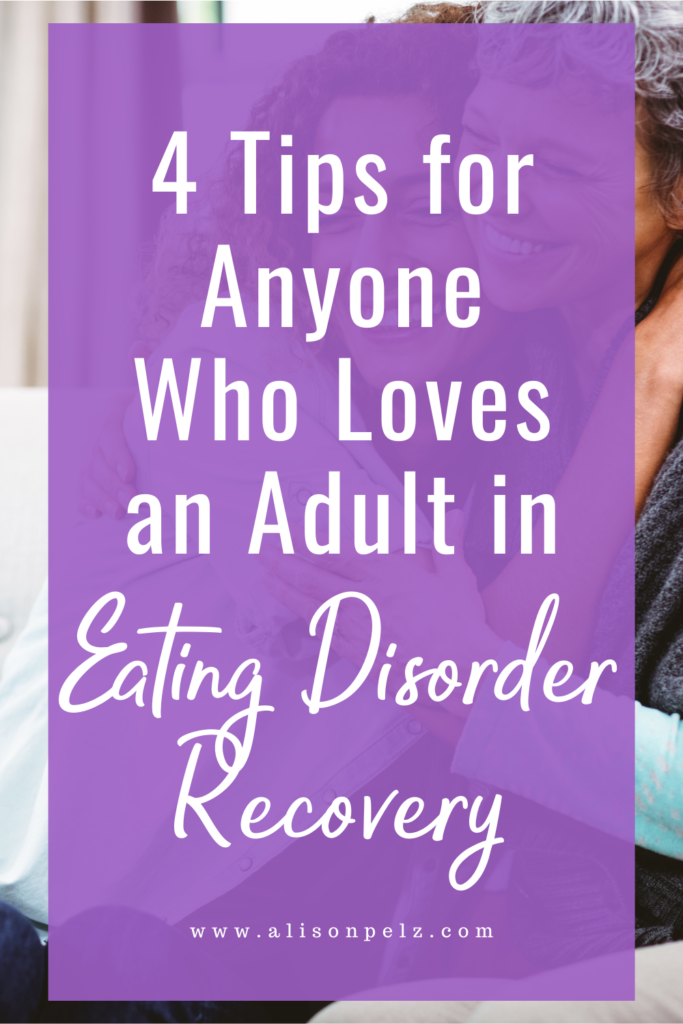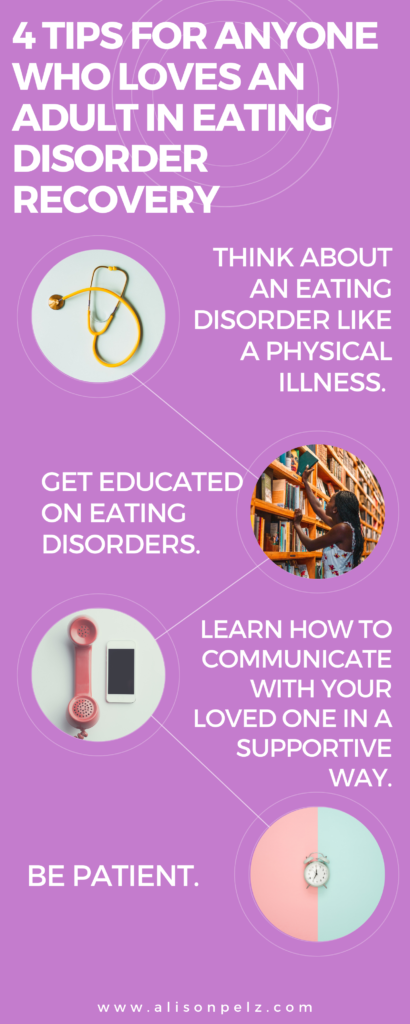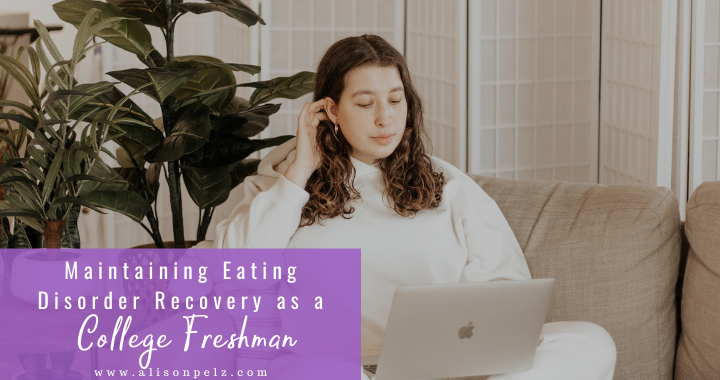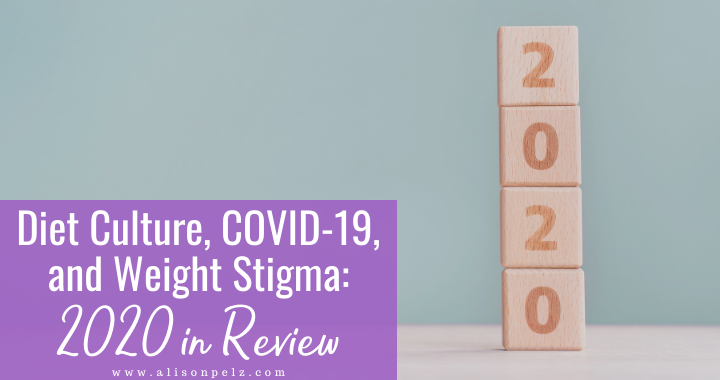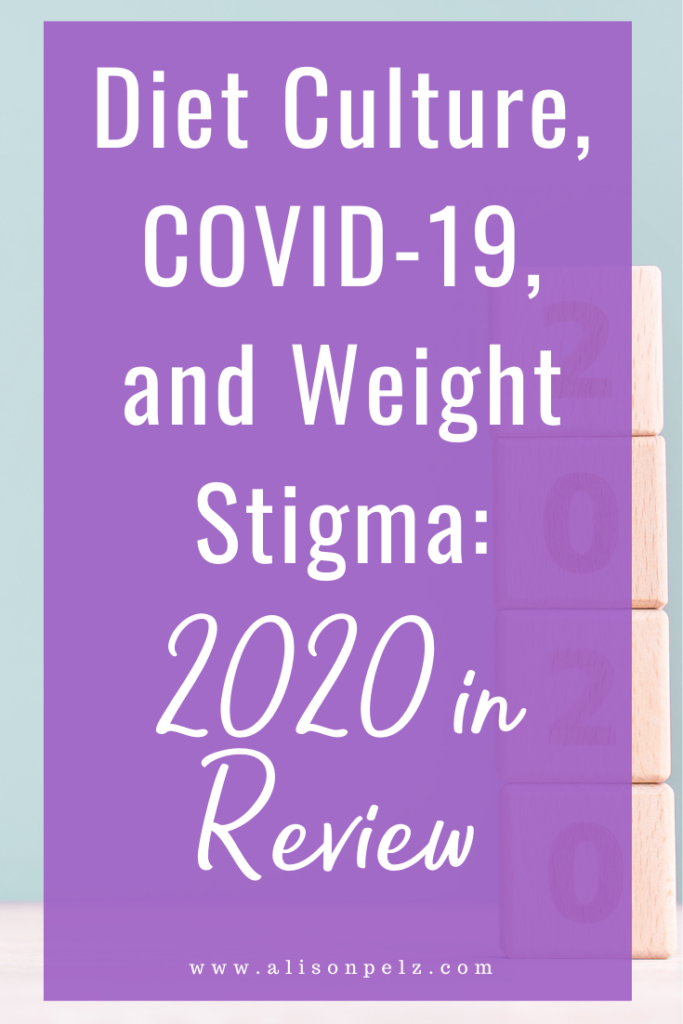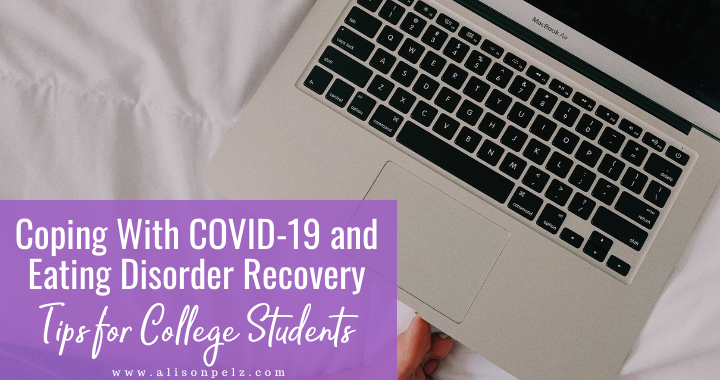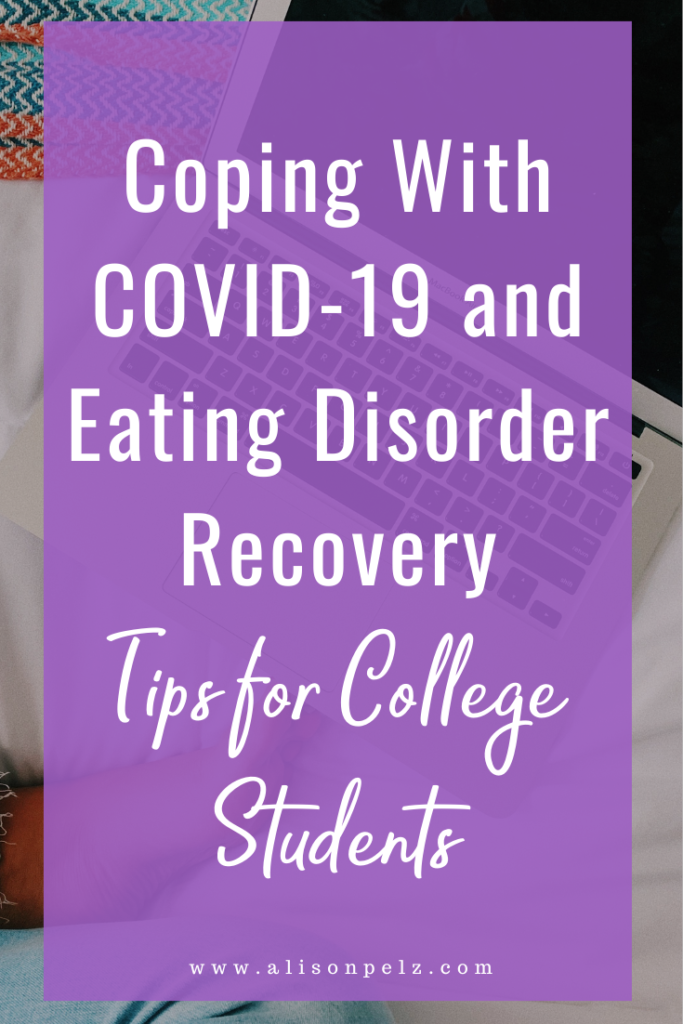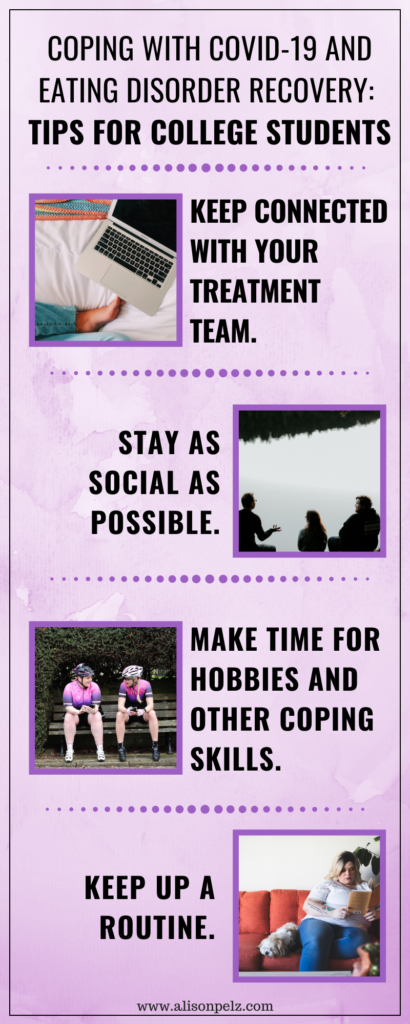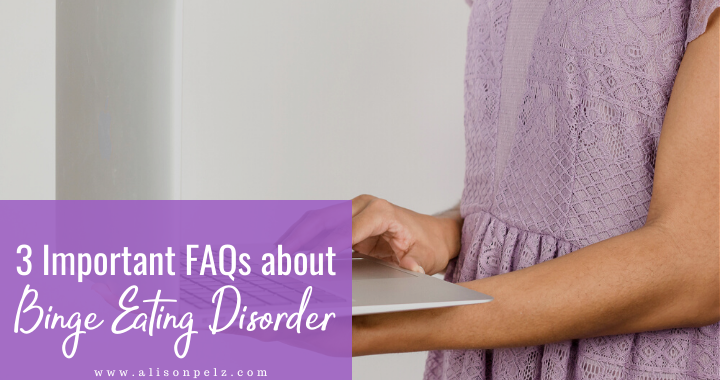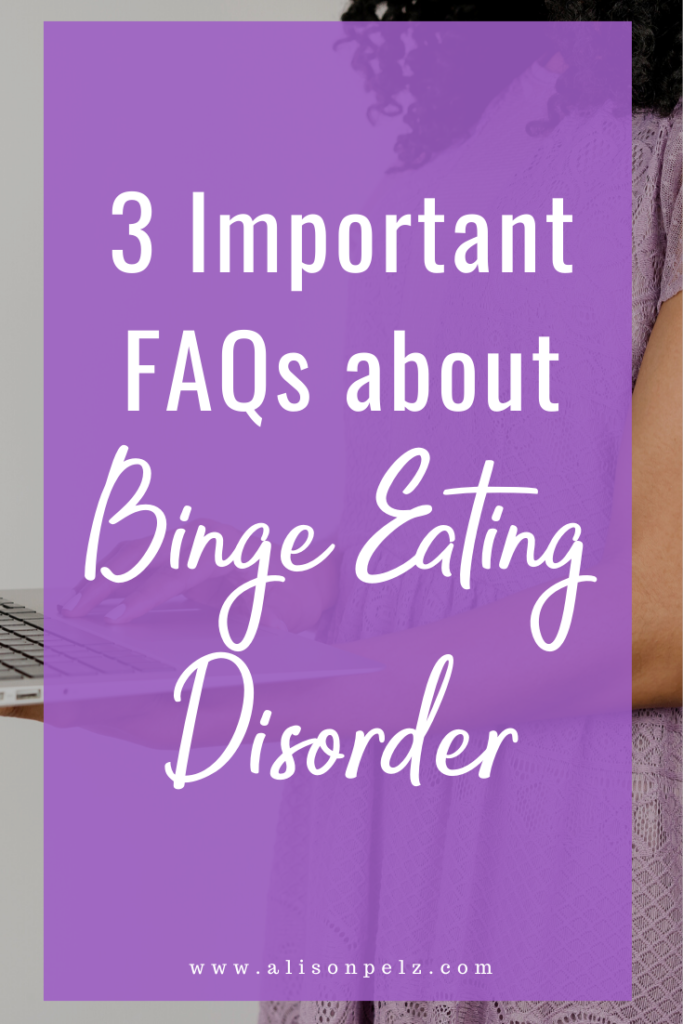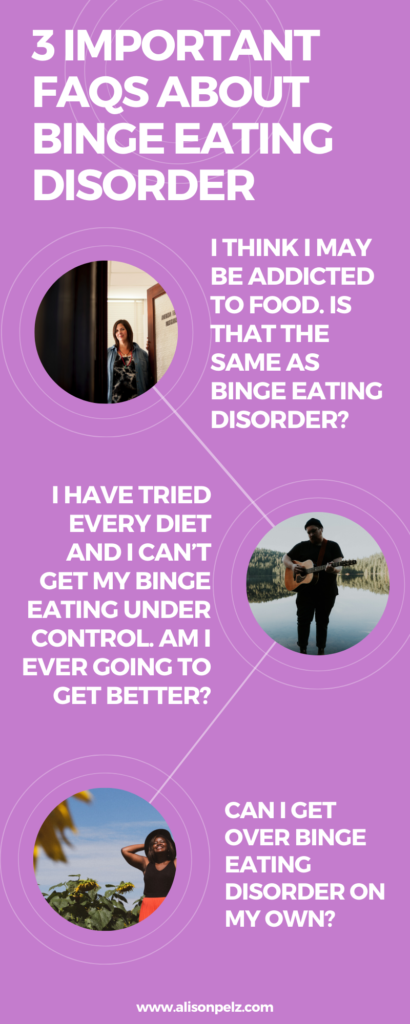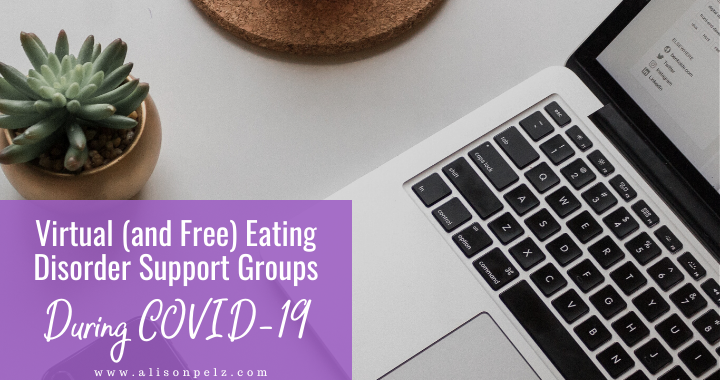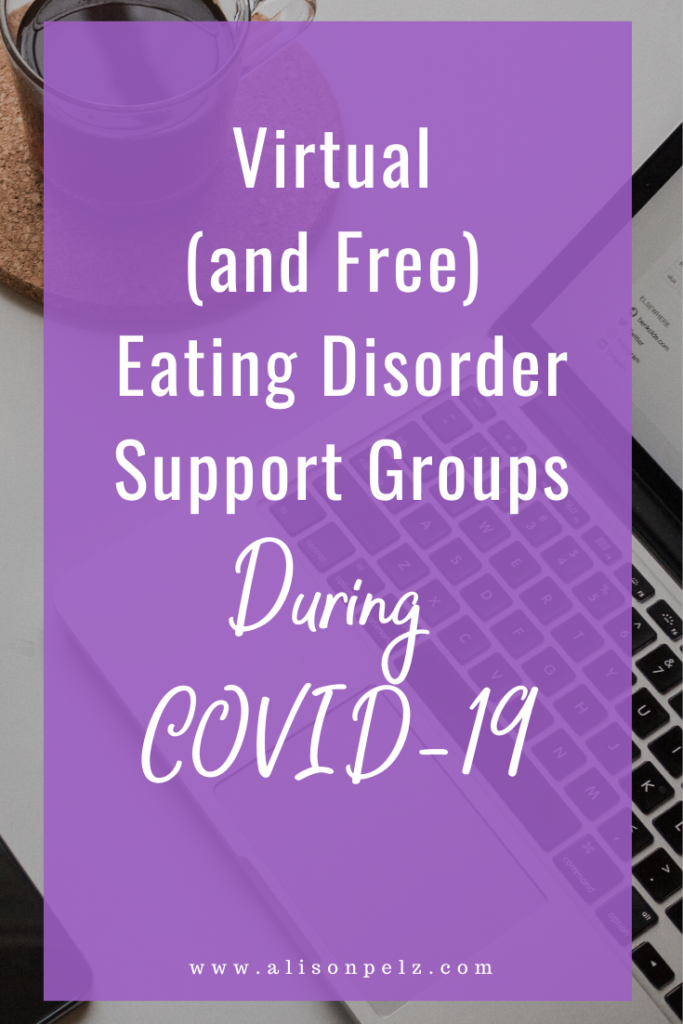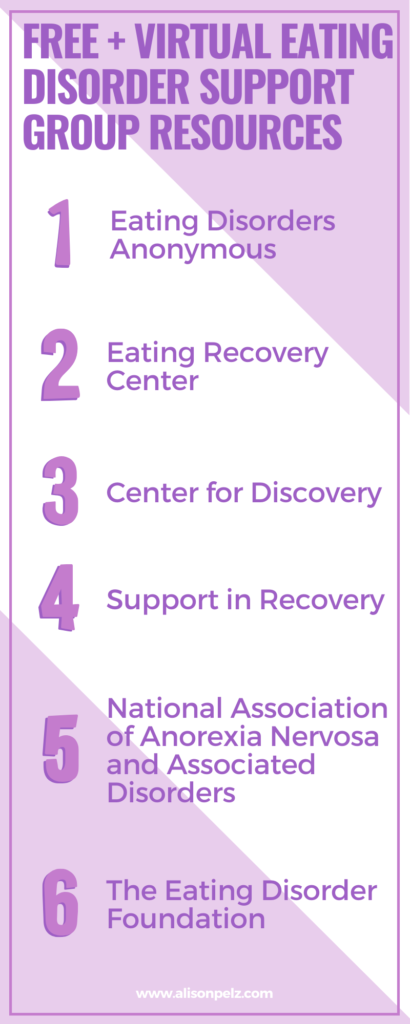When you hear the words “eating disorder” what comes to mind? More often than not, eating disorders are associated with teenage girls. While it is true eating disorders often develop in adolescence, adults can have eating disorders, too.
It’s possible for eating disorders to initially develop later in life, not just during adolescence. It’s also possible that adults suffering from an eating disorder developed it during adolescence and never fully recovered. Life stressors (like a pandemic, for example!) later in life can also cause a relapse of eating disorders.
Eating disorders develop for a variety of reasons including genetics, temperament, gender, and dieting history to name a few.
It is less important why and how the eating disorder developed, and more important to focus on supporting your loved one in their eating disorder recovery.
If you love someone in eating disorder recovery, here are four ways to show your support:
1. Think about an eating disorder like a physical illness.
An eating disorder, like cancer, is not a choice. This is often misunderstood. If it was as simple as just choosing to eat more food, far fewer people would suffer with eating disorders.
If your loved one was going through treatment for cancer you may do some of the following: learn about their diagnosis, take them to treatment appointments, provide support, and check-in with them more frequently.
You can do the same with eating disorders. Eating disorders are dangerous and can cause long-term health effects and even death, and they should be taken seriously. See what you can do to understand that eating disorders (EDs) are a physical as well as mental illness.
2. Get educated on eating disorders.
Learning as much as you can about eating disorders is another way to support a loved one in recovery. Eating disorders on the surface appear to be about food. But, make no mistake, while food issues are part of the eating disorder, eating disorders are psychiatric illnesses that must be treated by experienced clinicians. Here are some resources to learn more about eating disorders:
- The National Association of Eating Disorders
- The Eating Disorder Sourcebook by Carolyn Costin
- Eight Keys to Recovery from an Eating Disorder by Carolyn Costin and Gwen Schubert Grabb
- Skills-based Learning for Caring for a Loved One with an Eating Disorder by Janet Treasure, Grainne Smith and Anna Crane
You can also ask your loved one if they would like for you to attend treatment appointments with them so you can get a better understanding of their treatment plan and goals.
There are also resources on social media sites like Instagram that offer helpful information about eating disorders, diet culture, and recovery. Make sure to check that the information you’re getting is coming from a reliable source – there are lots of folks out there who borrow language from body positive and anti-diet circles but who are still pushing intentional weight loss or food restriction. It can be really eye-opening to learn about the root causes of eating disorders, in addition to being a great way to support someone you love with an eating disorder.
3. Learn how to communicate with your loved one in a supportive way.
As with most things, supporting someone in eating disorder recovery requires communication. The best way to find out how to support them is to ask! Ask them directly what would make them feel supported or what they’re struggling with. Find out what they would find helpful or for ways you can provide support (or adjust your support if necessary).
It can be tricky to communicate about such emotionally charged topics. Statements such as these can feel supportive to your loved one.
- “I know this is hard.”
- “You can do hard things.”
- “I am here if you would like to talk about it.”
There are a lot of ways to be supportive, but some statements aren’t helpful for folks in ED recovery. Unhelpful statements that you may be tempted to say (remember the ED is not only about the food)
- “Just eat.”
- “I don’t know why this is so hard…do what I do [insert advice about food, exercise].”
Remember, eating disorders are not just about the food. Everyone’s body is different, and most of us aren’t qualified to give out medical or nutritional advice anyway – we can leave that to the folks on the treatment team.
Another thing to keep in mind is that mealtime can be particularly stressful for those with eating disorders. Some meals and foods may be easier or harder for your loved one to eat. If you eat with your loved one at mealtime it may be helpful to focus on light conversations that have nothing to do with their eating disorder.
4. Be patient.
Eating disorder recovery is a marathon, not a sprint. Recovery is not linear, in fact, it can get quite messy. It requires lots of learning and unlearning, as well as patience and self-compassion.
Don’t give up, and keep checking in with your loved one. Get support for yourself if you need a space where you can process the emotions of supporting someone through recovery. It’s okay to recognize that supporting someone sometimes means asking for help yourself. The National Alliance for Eating Disorders has free support groups for loved ones.
